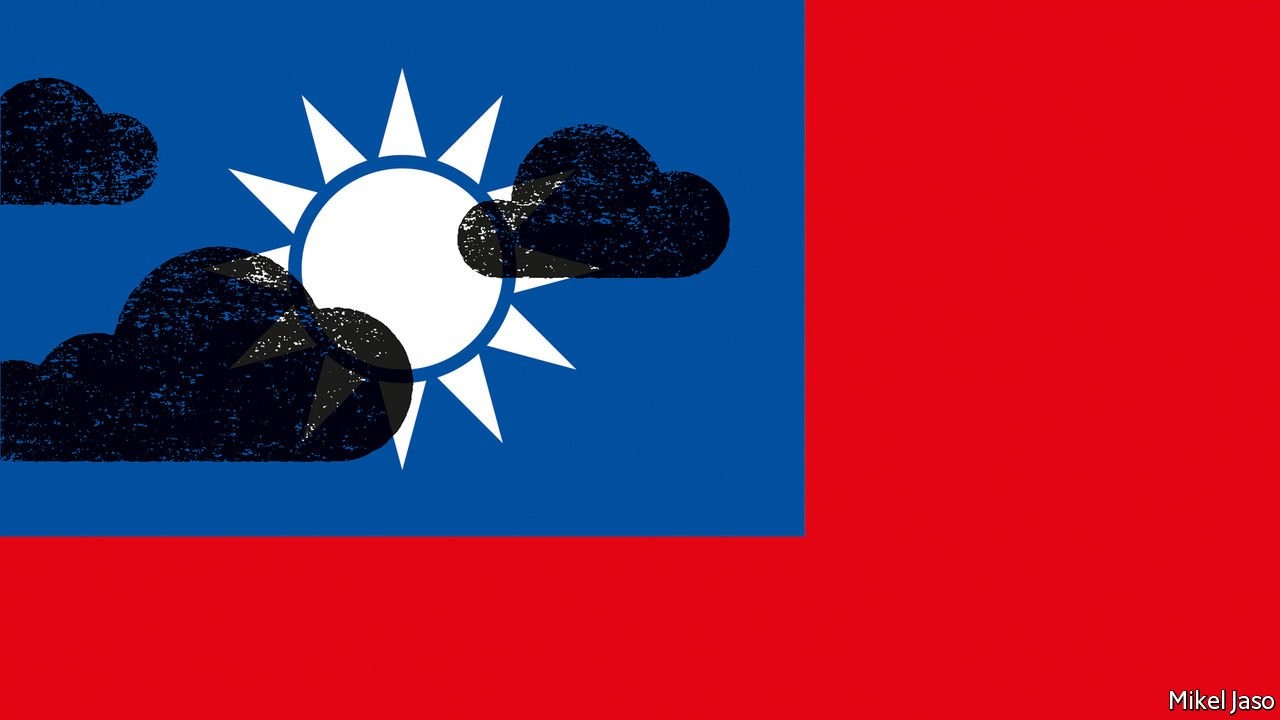CHINA’S MILITARY AND ECONOMIC BULLYING HURTS TAIWAN
China increases its military bullying tactics against Taiwan even as it seeks to damage the island’s economy by banning import of fish and pineapples. Taiwan refuses to give in to the “bullying” even as the United States warns Beijing against provocative actions.
On June 21, China’s PLA air force sent over two dozen aircraft into Taiwan’s air defense zone, according to social media announcements by the Taiwanese Defense Ministry in Taipei. Twenty-nine aircraft of nine different kinds participated in the drills, which included 17 fighter jets, 6 bomber planes, and an anti-submarine aircraft.
The 29 aircraft, as identified by Taipei, included the following: Yun-9 communication countermeasure aircraft 1 sortie; Yun-8 reconnaissance aircraft 1 sortie; H-6 aircraft 6 sorties; One Y-20 Aerial Refueling craft; Air Police-500 aircraft 2 sorties; Y-8 anti-submarine aircraft 1 sortie; J-16 8 sorties; Sukai-30 aircraft 4 sorties; J-11 5 sorties.
Taiwan immediately dispatched “air patrol forces to respond, broadcast expulsion, and monitor anti-aircraft missiles”. The defense ministry also issued radio warnings and deployed air defense missile systems to monitor the activities. The Chinese sorties withdrew thereafter.
This was the third illegal intrusion by multiple Chinese aircraft into Taiwanese air space this year. On May 30, the defense ministry in Taipei announced intrusion by 32 Chines aircraft. They were identified as: Air Police-500 aircraft 2 sorties; Y-8 reconnaissance aircraft 4 sorties; Yun-8 remote dryer 1 sortie; Y-8 anti-submarine aircraft 1 sortie: J-16 6 sorties; J-11 8 sorties; J-10 4 sorties; Sukai-35 aircraft 2 sorties; Su Kai-30 aircraft 2 sorties.
Earlier, on January 23, 39 aircraft intruded into Taiwanese air space. They were identified by Taipei as: Yun-9 communication countermeasure aircraft 2 sorties; J-10 10 sorties; J-16 24 sorties; Y-8 reconnaissance aircraft 2 sorties; H-6 aircraft 1 sortie.
The DefenseOne military news website reported: “China conducts these seemingly antagonistic exercises nearly every day.” The US State Department reacted: “We urge Beijing to cease its military, diplomatic, and economic pressure, and intimidation against Taiwan. We have an abiding interest in peace and stability across the Taiwan Strait. We will continue to assist Taiwan in maintaining a sufficient self-defense capability.”
“The U.S. commitment to Taiwan is rock solid and contributes to the maintenance of peace and stability across the Taiwan Strait and within the region,” the spokesperson added.
DefenseOne quoted a defense expert and associate research fellow with the Taipei-based National Policy Foundation think tank, Chieh Chung,as saying that that the “one thing worth noticing about Tuesday’s incursions was that eight of the 29 Chinese aircraft had flown deep into Taiwan’s southeastern ADIZ before heading toward to the Philippine Sea.” It is considered a rare move made by Chinese warplanes to fly into the Philippine Sea, Chieh said, adding that he believed “these aircraft were part of separate exercises conducted by a larger long-term strike group”.
China simultaneously started attacking Taiwan on the economic front by banning all imports of the famous Grouper fish from Taiwan. Hundreds of Taiwanese fishermen who depend on the export of this fish, declared a national delicacy in both countries, have gone bankrupt.
Earlier China banned Taiwanese pineapples from entering the mainland. It had previously restricted the island’s access to China’s vast consumer market, also banning Taiwanese wax apples saying the fruits brought in pests.
The New York Times reported how Taiwan rallied to protect its farmers: “Taiwan has sometimes been able to blunt the impact of such measures. The public quickly rallied to support the island’s pineapple farmers. Restaurants raced to introduce menus featuring pineapple-centered culinary creations, politicians posted photos of themselves eating “freedom pineapples” on social media and government departments encouraged public servants to eat more of the thorny fruit. Countries like Japan stepped in to help make up for the shortfall by increasing their imports of the island’s pineapples.”
However, these efforts cannot be sustained over a long period of time. The farmers cannot survive without access to the Chinese market primarily because both the products – fresh fruits and fresh fish – are highly perishable and need to be dispatched in no time after harvesting them.
The New York Times said: “Last year, 91 percent of grouper exports, worth more than $50 million, went to China, according to Taiwanese government data. The fish, which is known for its lean and moist meat, is regarded in Taiwan as a relatively high-end seafood typically eaten on special occasions, unlike pineapple. Since China’s ban, the price of one type of grouper has already fallen to $3.30 per pound from $4, according to Mr. Lin, the grouper farmer.”
Much of the Grouper fish dispatched to China was sold live because the Chinese prefer to eat the fish fresh, cooked immediately after it is killed. “Shifting to markets farther afield would require using what logistics businesses call ‘cold chain’, a system of refrigerated or frozen transportation and storage of perishable products, which brings added costs. While there has been a slight uptick in interest from domestic customers and Japanese buyers in recent days, several grouper farmers said their phones had been unusually silent.”
Taiwan’s Council of Agriculture is thinking of complaining about the Grouper ban to the World Trade Organization. Lin Kuo-ping, the deputy director general of the official Fisheries Agency, said: “The government had reached out to their Chinese counterparts to discuss the inspection process but had not heard back. China’s General Administration of Customs did not respond to an emailed request for comment.” The fishermen’s worry is if the Chinese ban is not lifted, they would have to sell the fish in the local markets but at cheap prices. Otherwise, the fish will remain in the ponds where they will over-populate and die over over-crowding.













